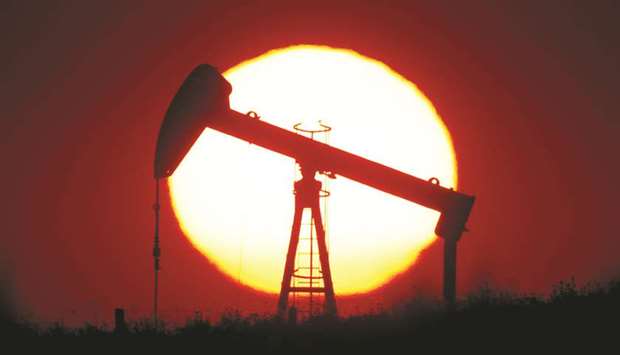The outlook for global oil markets has grown “even more fragile” as a resurgent pandemic derails the recovery in demand, the International Energy Agency said.
The IEA, which advises major economies, trimmed forecasts for fuel consumption for the rest of the year and predicted that oil inventories – which rebounded to record levels in July – won’t subside as sharply as anticipated.
“We expect the recovery in oil demand to decelerate markedly in the second half of 2020, with most of the easy gains already achieved,” the Paris-based agency said in its monthly report. “The path ahead is treacherous amid surging Covid-19 cases in many parts of the world.”
Oil prices are trading below $40 a barrel in London, close to their lowest in more than two months, as the recovery seen earlier this summer begins to falter. The downbeat view from the IEA chimes with bleak assessments this week from oil giant BP Plc, trading house Trafigura Group, and Opec.
The IEA’s downgraded outlook underscores the challenge faced by the Organisation of Petroleum Exporting Countries and its partners, who have made vast production cuts to prop up the market and will meet later this week to review their progress.
The coalition is also struggling to keep all members committed to its strategy.
Between January and July, world oil demand was on average 10.5mn barrels a day lower than last year, or roughly 10%, as lockdowns aimed at halting the virus emptied roads and grounded flights, the agency said. Even now, consumption remains down by about 10.7mn barrels.
The biggest adjustment to the demand forecast was for the fourth quarter, cut by 600,000 barrels a day. While oil inventories worldwide are still on track to shrink considerably in the second half, by 3.4mn barrels a day, that’s 1mn a day less than predicted a month ago.
Part of the revision stems from the growth in teleworking, which “in the space of just a few months” is having a “meaningful impact” on demand by depressing the need for transport fuels, the IEA said. A sharp slowdown in Chinese purchases has also weighed on the market, it added.
Oil inventories in developed nations rose in July to a record 3.225bn barrels, even as the Opec+ alliance kept huge volumes of output idle.
Last month the coalition restored some supplies on signs that economic activity was recovering, with output rising by close to 2mn barrels a day, according to the IEA.
Opec+ will hold a monitoring meeting on Thursday to assess the impact of that decision.

The sun sets behind an oil pump outside Saint-Fiacre, near Paris (file). The IEA, which advises major economies, trimmed forecasts for fuel consumption for the rest of the year and predicted that oil inventories u2013 which rebounded to record levels in July u2013 won’t subside as sharply as anticipated.


